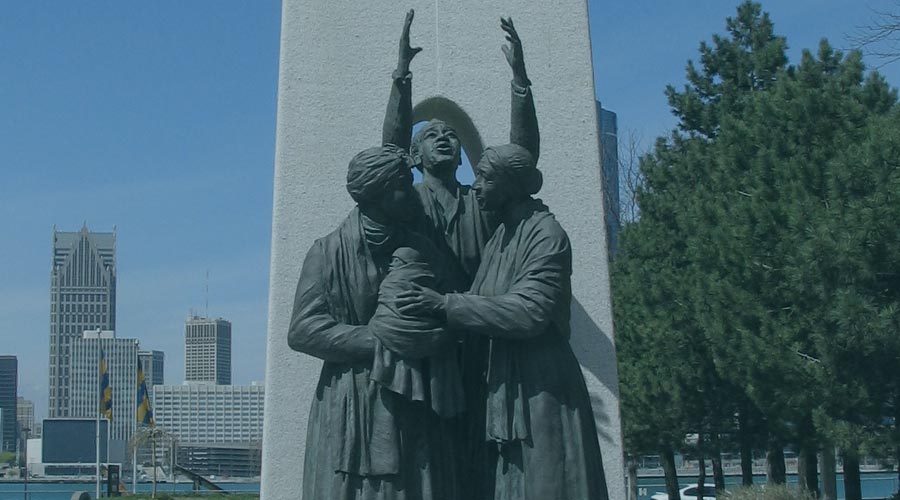In April 2022, Detroit-born environmentalist Zwena Gray began hiking the Bruce Trail, a 559-mile trail that represents the oldest and longest marked continuous Underground Railroad passage in Canada. The hike took around six weeks to complete, and it “[ran] through Niagara to Tobermory in southern Ontario.” Upon completion, Gray became the first Black woman to complete the entire trail of Underground Railroad passages since the eradication of slavery.
As systemic barriers continue to prevent marginalized communities from accessing high-quality outdoor experiences, Gray hopes her hike will be an example of “what Black joy looks like engulfed in nature,” and inspire more people of color to get outdoors. “Being from Detroit, I really wanted to bring that connection to nature to my community,” said Gray. “It’s not only important for Black people to be present in these natural environments, but it’s also important for us to showcase just the freedom and liberation and just ease of existing in these spaces.”
In addition to her love of nature, Gray is passionate about Black history and is using her hike to learn more about those who escaped slavery through the Bruce Trail.
While we may be familiar with the Underground Railroad as a historical touchpoint and with the work done by anti-slavery activists such as Harriet Tubman, it’s less known that members of the modern day public can interact with living history regarding the Railroad. The National Park Service of the United States, in fact, maintains many Underground Railroad buildings and artifacts as part of telling the important stories of American history, including those involving slavery.
Robert F. Smith’s Passions for Nature and Preserving Black History
As a native Coloradoan, Smith grew up with an appreciation for the outdoors and supports efforts that champion equitable outdoor access. In addition, Smith is an advocate for racial justice and makes frequent donations to organizations that are dedicated to preserving Black history and landmarks.
In 2007, Smith and entrepreneur Matthew Burkett founded Lincoln Hills Cares, a Colorado-based nonprofit that offers outdoor education and recreation programs for underserved communities to close gaps in outdoor access. In 1922, Lincoln Hills was established as the only Western resort accessible to African Americans, and serves as an important landmark in Black history. Today, Lincoln Hills Cares has served over 103,000 young people and partners with more than 75 organizations.
Smith is founding director and President of Fund II Foundation, and his passion for Black heritage and history “pervade the Foundation’s mission and spirit.” Through Fund II Foundation, Smith supports the National Park Foundation (NPF), the official charity of the National Park Service. In 2001, NPF created the African American Experience Fund to raise awareness and support national parks and historic sites that “celebrate and tell the story of African American history and culture.”
In 2019, through a grant from Fund II Foundation, the National Park Foundation purchased the homes where Dr. Martin Luther King Jr. lived. The homes were transferred to the care of the National Park Service to be preserved and accessed as part of Martin Luther King Jr. National Historical Park in Atlanta, Georgia. About the historic purchase, Smith said, “This grant will help make it possible for all people to experience and learn first-hand about Dr. King’s legacy and the civil rights stories that are part of our shared American heritage.”
Learn more about Smith’s efforts to preserve Black history through national parks and historic sites.






